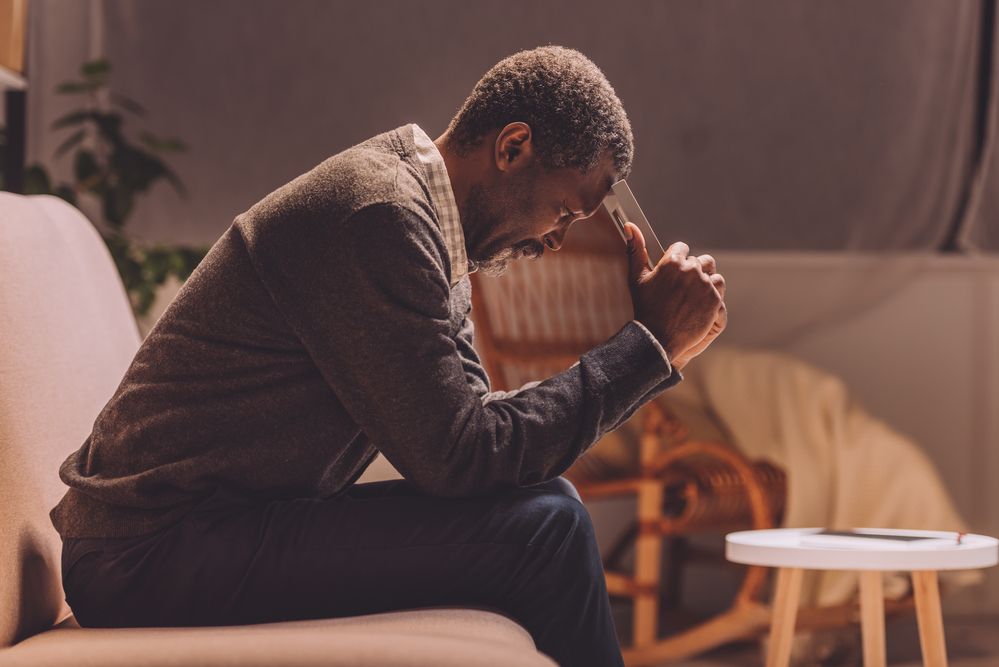September 28, 2015
Why Do I Feel Alone Even When I’m with Others?
Written by Rachel Eddins
Posted in Depression, Emotional & Mental Health and with tags: Communication, anger, confidence, negative self-talk, self-esteem
Just like happiness or stress, loneliness is a complex state of mind.
Loneliness can be the product of any number of conditions in your life; how you feel lonely might look different than it does for someone else.
Whatever the cause or the manifestation of your isolated feelings, loneliness is the alarm that rings when your fundamental need of emotional intimacy is not being met.
One of the most difficult aspects of experiencing loneliness is feeling hopeless to step back into connectedness. It makes sense that if you don’t know how you first became trapped, you’re unsure how to fight your way back to the surface.
The good news is that reaching back out to the people around you is a fight worth fighting, and it’s a fight you can win.
So why might you be feeling alone among others?
1. You don’t want to burden others with your worries.
If you’re navigating a particularly tricky stretch of terrain in your personal life, you might feel like you’re overloading the people around you by talking about your struggles.
Maybe you feel like you’re being selfish by sharing your heavy load. In truth, there are just some things you can’t carry alone. Leaning on the people who love you—and who would likely feel honored to walk beside you—can pull you out of your isolation.
2. You often find yourself among good friends, rather than great friends.
If you’re feeling alone in a crowded room, it might be time to call an old friend, or to get to know a new friend more deeply.
Having a wide web of friendships can be great—it feels like you always have something to do, and someone to call. Making new friends expands your world, but it doesn’t always act as the best system of emotional support.
If you’re feeling alone in a crowded room, it might be time to call an old friend, or to get to know a new friend more deeply.
You need to know that you’re truly cared for in your world.
3. You feel angry and depressed.
Negative and painful feelings like fear, anger, and isolation can come into your life as a package deal, often when you haven’t recognized or dealt with pain in your past.
Events and relationships from years ago can affect how you form relationships today. An early rejection or emotionally abusive relationship can make you feel like you need to stay closed off to protect yourself from more hurt.
4. You want to reach out, but feel nervous or embarrassed.
Maybe you want to stretch your wings and make close friends, but you feel like you fall short whenever you try. Maybe you feel like you just don’t fit in at work or school.
Loneliness often appears when you feel bad about yourself. After all, how can you open the doors to others, if you’re uncomfortable with what you might let out?
How can you start breaking free from loneliness?
You truly don’t have to feel lonely forever. Since you probably started feeling isolated in the first place because you wanted to avoid the pain of opening up, breaking free of isolation can be tough.
Taking small steps makes the journey easier—try reaching out to people you trust, and treating yourself with compassion, as you move forward. No matter what’s going on in your life, there are people out there who can and want to help.
Combat loneliness and isolation with meaningful relationships
 Meaningful relationships are essential regardless of age, whether you are ten years old or a ten-year-old at heart.
Meaningful relationships are essential regardless of age, whether you are ten years old or a ten-year-old at heart.
Healthy relationships in which you are cared for, respected and accepted help tremendously to relieve anxiety, stress, and depression.
It’s also good for your body, as stress and loneliness can contribute to heart disease and other medical issues.
However, many people continue to struggle with loneliness, feeling isolated and disconnected from other people.
Perhaps this describes you—and yet, there is a part of you that craves and longs for social connection.
But how?
Here are four tips that can help you build meaningful relationships at any age.
1. Start Talking to Somebody
Having an initial conversation with someone is the first step towards building a relationship. Of course, you might not want to talk with anyone. It’s fine to have limits and standards, but the idea stands.
For example, it might be that you see the same person in line every day for coffee. One day, you say, “Hi, how’s it going?” Then you are both off to a conversation. It doesn’t have to be the most profound discussion in the world, but it’s a start.
Now, replicate that outcome with other scenarios, such as:
- Fellow students that you see in class
- Coworkers or the administrative assistant at work.
- People who frequent the gym at the same time you do
- The regulars who always ride the bus together
An advantage is that these conversations allow you to experiment and practice discussing with another person. That practice helps build the muscle memory you need to have more extended and more in-depth discussions later.
2. Embrace Technology
In the 21st century, technology has become indispensable for how we communicate with others. It can also be useful to build and maintain relationships.
For example, losing yourself in chat rooms where everyone is anonymous doesn’t help to build meaningful relationships. However, you can use technology in other ways, including:
- Having a video chat with a friend or family member
- Participating in an online meetup (happy hour, visiting with family, etc.)
- Sending emails with photos and videos
- Utilizing social media apps for good (sending affirming messages, sharing something inspirational, praising someone on a job well done, etc.)
3. Go “Old School”
On the other hand, you can build meaningful relationships by going old school with your communication. The following are a couple of ideas:
Send a Letter
Requires more commitment to sit down and write something on paper, then send it in the mail. Hence, it will have that much more meaning to the recipient!
Make a Phone Call
Calling someone requires slightly less commitment than writing a letter. However, it’s still meaningful as you and the other person hear each other’s voices. It also supports more immediate communication.
You don’t have to give up on technology. However, think about incorporating these other methods of communication into your strategies for combatting loneliness.
4. Take a Class
One of the hardest things about meeting people is merely meeting people. Consider taking a class to help with this hurdle. It could be academic, personal enrichment, or for your health.
When you take a class, you join others who are all in the same boat as you—new learners about to embark on a shared experience. Whether it’s few days, weeks, a whole semester, or ongoing, you build connections with others during the class.
You create a relationship with the teacher or instructor of the course, as well. So why not learn something new?
If you find you still struggle with loneliness, that’s okay.
It just means that you might need additional support. Coping with loneliness and building meaningful connections is challenging work.
Talking to a therapist can help you develop skills to form and maintain essential relationships. Eddins Counseling Group in Houston, TX has several experienced counselors that can help you make the most of your relationships or navigate new social connections. We also offer online sessions for flexibility. Call us today at 832-323-2355 or book an appointment online. If you’re ready to begin forging connections to combat loneliness, please reach out to us today. We want to help.
7 Mood-Boosting Tips
Get instant access to your free ebook.
Grounding & Self Soothing
Get instant access to your free ebook.
Why You Feel This Way
Get instant access to your free ebook.
Create Healthier Thoughts & Feelings
Get instant access to your free ebook.




















